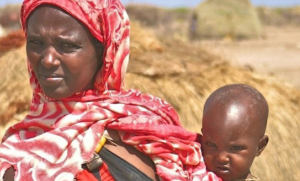AIDS Resolution Hijacked by “Sexual Progressives.” Africans Dismayed
 “This is unacceptable,” said Zimbabwe’s delegate.
“This is unacceptable,” said Zimbabwe’s delegate.
Her voice broke from frustration and regret. A resolution on HIV/AIDS, championed by the poorest African countries most affected by the deadly disease, was changed after negotiations had finished. The Netherlands demanded protections for children be removed, subtly giving a nod to sexualizing children and putting people at greater risk of HIV/AIDS.
African delegates had tailored the resolution to address HIV/AIDS as a public health tragedy. The U.S., European and a few Latin countries view the disease as a platform to de-stigmatize sex in any form.
Negotiations had stretched over two weeks at UN headquarters. It was past midnight last Friday when the final resolution on HIV and AIDS among women and girls, sponsored by Malawi, was presented to the chair of the UN Commission on the Status of Women.
In a surprise move, the Dutch delegate intervened to amend the resolution on behalf of the US and other countries in Europe and Latin America. They could not accept a mention of “delay of sexual debut” in a paragraph on helping women and girls protect themselves from HIV. Among the other defenses against HIV left in were condoms, gender equality, and gender sensitivity.
The draft had narrowly avoided being stripped of references to abstinence and fidelity. A confidential source told the Friday Fax that at the start of negotiations behind closed doors the U.S., European Union, and some Latin American countries insisted these be removed or there would be no resolution at all. A reference to reducing the number of sexual partners was removed later.
Netherlands’ amendments passed by a small margin.
One after another, African countries– including the primary sponsor Malawi – withdrew their support and abstained in the vote in protest.
A disheartened delegate from sub-Saharan Africa, where the AIDS epidemic has hit hardest, was especially dejected. As delegates who hijacked the resolution walked by, she said, “It’s all about sex, sex, sex, for them.”
In Africa, women uniquely bear the brunt of the HIV epidemic, in part because male-to-female transmission is much more likely than female-to-male. In the countries that asked for the removal of language on abstinence, fidelity, delayed sexual debut, and fewer sexual partners, HIV is mostly concentrated among recreational drug users, prostitutes, and men who have sex with men.
The African countries’ approach of fidelity and abstinence is based on their own experience fighting HIV/AIDS. A recent review reported that early sexual debut and multiple partners – particularly concurrent partners – are major risk factors for African women, not only for HIV but other sexually transmitted infections.
Early sexual debut and multiple sexual partners are associated with poverty. A pilot program in Malawi showed young women receiving cash transfers to attend school had lower HIV incidence because of delayed sexual activity, younger and fewer partners, and less likelihood of falling into prostitution. They were also more likely to continue their education and avoid child marriage. Other research shows partner reduction and fidelity led to HIV reduction in Kenya.
The adoption of the resolution was met with loud cheers from the “sexual rights” advocates in the gallery and jeers at African delegates and the Holy See who defended fidelity and abstinence.
One delegate could not hide her emotion as she voiced her dismay. “As a country that is one of the hard-hit areas in the HIV epidemic, Zimbabwe regrets this day.”

